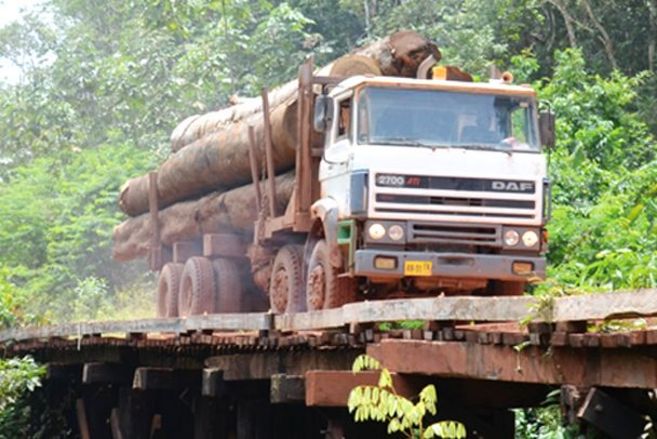Project
Analysis of forest management and reforestation potential in the Boeny region, Madagascar.
![[Translate to English:]](/media/_processed_/5/e/csm_WW_AFOB-Madagascar_bca59c591d.jpg)
Analysis of forest management and reforestation potential in the regions of Boeny and Diana in Madagascar (AFOB)
The forests in Madagascar are of great importance for nature conservation, as they are home to a variety of endemic species. However, we are witnessing alarming deforestation and forest degradation. At the same time, the local population depends on forests to secure their livelihood through firewood and other ecosystem services. The comprehensive analysis of existing reforestation areas as well as the identification of drivers of deforestation serve as a basis for decision-making in order to optimize effective measures to prevent further deforestation.
Background and Objective
Rapid deforestation and forest degradation in recent years have not only led to a decline in biodiversity and soil erosion, but also affect adversely local people that rely on forests. The use of timber plays an important role in Madagascar's livelihood. The local demand for firewood and construction timber is largely met illegally from natural forests and thus contributes significantly to their destruction. Creating sustainable wood supply chains is therefore important to reduce pressure on natural forests. Reforestation, especially for firewood, is crucial in this context. In addition to illegal wood use, forests have also been significantly altered by the expansion of agricultural land. The resulting human-modified forest landscapes are often highly fragmented and degraded. It is highly relevant to both protect the remaining pristine natural forests and promote the restoration of degraded forests in order to preserve biodiversity and ensure ecosystem services.
The German development cooperation GIZ (Deutsche Gesellschaft für Internationale Zusammenarbeit (GIZ) GmbH) has been carrying out reforestation measures for this purpose in the Diana and Boeny regions since 1994. The aim of the AFOB project is, on the one hand, to assess the success of these measures by analysing the spatial and temporal development of these reforestation areas. On the other hand, remaining forest areas in the regions are analysed on the basis of relevant ecological and socio-economic indicators in order to determine the individual drivers of forest degradation and forest loss.
The results of the project contribute to the targeted planning of future interventions. Among other things, they make it possible to assess which forest areas are more suitable for management by local communities or require special protection, for example through the designation of buffer zones or areas for ecological restoration and biodiversity conservation.
Approach
Both reforestation areas and existing forests are described on the basis of freely available remote sensing data. Relevant data for the regions include information on natural vegetation, conservation status, land use, biomass distribution, population density and other socio-economic factors. Time series are produced to analyse the development of afforestation and forest areas.
On the basis of this information, it is deduced which factors are decisive for the success or failure of reforestation measures and which direct drivers, such as wood use and shifting cultivation, lead significantly to deforestation.
Results
- Evaluating forest degradation, deforestation, and reforestation in Boeny and DIANA: Current efforts and future opportunities
Thünen Working Paper 248: DOI:10.3220/WP1728377983000 - Substantial forest loss and degradation in Madagascar: when, where, and why?
Thünen Project brief 2024/26a: DOI: 10.3220/PB1731914839000 - Lessons learned from thirty years of reforestation in Madagascar: The ’How’ triumphs over the ’Where’
Thünen Project brief 2024/30a: DOI:10.3220/PB1733131943000
Thünen-Contact

Involved Thünen-Partners
Involved external Thünen-Partners
-
Deutsche Gesellschaft für Internationale Zusammenarbeit (GIZ) GmbH
(Bonn, Deutschland)
Funding Body
-
Deutsche Gesellschaft für Internationale Zusammenarbeit (GIZ) GmbH
(national, öffentlich)
Duration
4.2023 - 6.2024
More Information
Project status:
finished
Publikationen
- 0
Kempe A, Kübler D, Peters F, Günter S (2025) Erheblicher Waldverlust und Walddegradierung in Madagaskar: wann, wo und warum? . Hamburg: Thünen-Institut für Waldwirtschaft, 1 p, Project Brief Thünen Inst 2024/26, DOI:10.3220/PB1731914347000
- 1
Peters F, Kübler D, Kempe A, Günter S (2025) Lehren aus 30 Jahren Wiederaufforstung in Madagaskar : das ’Wie’ triumphiert über das ’Wo’. Hamburg: Thünen-Institut für Waldwirtschaft, 1 p, Project Brief Thünen Inst 2024/30, DOI:10.3220/PB1733131268000
- 2
Peters F, Kübler D, Kempe A, Günter S (2025) Lessons learned from thirty years of reforestation in Madagascar : the ’How’ triumphs over the ’Where’. Hamburg: Thünen Institute of Forestry, 1 p, Project Brief Thünen Inst 2024/30a, DOI:10.3220/PB1733131943000
- 3
Kempe A, Kübler D, Peters F, Günter S (2025) Substantial forest loss and degradation in Madagascar: when, where, and why? . Hamburg: Thünen Institute of Forestry, 1 p, Project Brief Thünen Inst 2024/26a, DOI:10.3220/PB1731914839000
- 4
Peters F, Kempe A, Kübler D, Günter S (2024) Evaluating forest degradation, deforestation, and reforestation in Boeny and DIANA: Current efforts and future opportunities. Braunschweig: Johann Heinrich von Thünen-Institut, 116 p, Thünen Working Paper 248, DOI:10.3220/WP1728377983000








